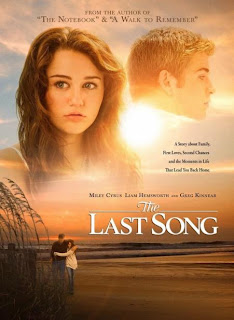 Have you ever heard the phrase "keeping up with the Joneses"? It's one of those sayings you hear said about someone else, usually because they own the most extravagant, expensive products on the market. They want to give off the idea that they are financially successful because they own things you don't. If there's a similar family living near them, it becomes a rivalry to see who can come out on top. Well, what if that family wasn't competing with you to be the best, but rather faking it to sell their clients' products?
Have you ever heard the phrase "keeping up with the Joneses"? It's one of those sayings you hear said about someone else, usually because they own the most extravagant, expensive products on the market. They want to give off the idea that they are financially successful because they own things you don't. If there's a similar family living near them, it becomes a rivalry to see who can come out on top. Well, what if that family wasn't competing with you to be the best, but rather faking it to sell their clients' products?The Joneses follows a family who does just that. The thing is, though, they aren't really a family. They are four separate employees who work within their age and gender to sell things fasionable to their crowd. There's Steve (David Duchovny), who spends the majority of his time golfing to sell sporting goods, Kate (Demi Moore), who talks up beauty products to her gal pals, Mick (Ben Hollingsworth), who does his best to sell video games and other toys to high school boys, and Jenn (Amber Heard), who, well, doesn't seem to do much at all.
She does, of course, but her character is so underdeveloped that you never really get a sense that she is doing anything other than exploring her promiscuity. If she's not crawling naked in bed with her unknowing "father," she's heading off to be the mistress to a married man on his private yacht. When things go wrong for her, you simply don't care.
But that's about as far as the negatives go in The Joneses. She may be benched for the majority of the movie, but that's because it spends most of its time with the other characters who are all dealing with their own issues. Mick isn't quite the person people think he is, Kate is job obsessed and won't allow herself to fall in love despite her obvious attraction to her fake husband and Steve is in inner turmoil over the falsity of his life. He pretends to be someone else to sell products, but in the process starts to lose his real self. He starts to want nothing more than to simply settle down and be with Kate in the real world rather than living behind this false façade.
It's an interesting dynamic because they are not a family, yet they still fall apart like a real family would. They have their good times, they have their bad, and it seems like nothing will be able to save them.
Then you have the underlying themes of commercialization and consumerism that drive the meaning of the movie home. The Joneses embody the walking billboards of America. They embody every person out there who walks around with the latest Nike shoes or Gucci handbag. They embody the celebrities and athletes who wear a particular brand because they are promised money in return. They even embody the young middle school boy who shows off his brand new handheld video game system to get his friends jealous, all of whom eventually shell out the money for one of their own.
It may be a pretty outlandish concept to think that companies would pay good money for a fake family to live in a neighborhood simply to sell a handful of products to those people—that business philosophy would surely cost more than what they're taking in from it—but at the same time it gets you thinking. The Joneses neighbor is the perfect example of the American way of life in that he spends more than he can afford in order to keep up a false veil of stature amongst his peers. He, like many Americans, spends himself into debt and finds it difficult to crawl back out. The movie makes the case, in a fairly literal fashion, that our material objects are weighing us down. See the movie and you'll know exactly what I mean.
All of that is handled with style and assurance from first time writer and director Derrick Borte. His debut is a mighty one indeed and he tells this tale with a sense of authenticity, conveying drama perfectly while still interjecting some hearty laughs in the midst of things. This is a man who knows what he's doing and I expect great things from him in the future.
The Joneses is a film that will, sadly, go under the radar. Even I had no clue what it was before I sat down to watch it, but those who seek it out will find a sweet, funny, dramatic, meaningful and hard hitting story that will connect with everyone from the poorest of the poor to those so rich they blow their noses with 100 dollar bills. They may find different meanings, but that's the beauty of the film. There's so much here on the surface and under that many will walk out with conflicting analyses, yet none will be wrong. The Joneses is shaping up to be one of the best films of the year.
The Joneses receives 4.5/5








